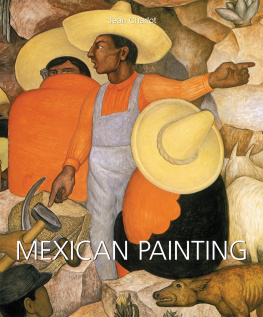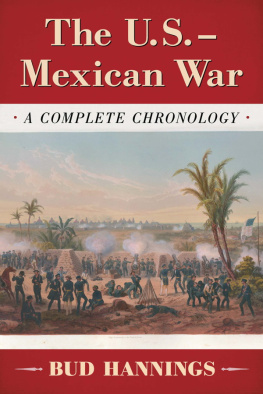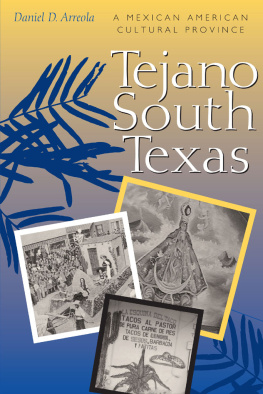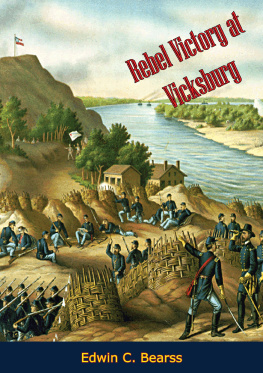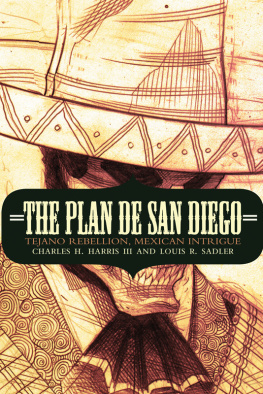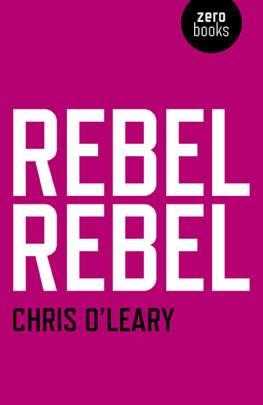The Rebel
Leonor Villegas de Magnn
Edited and Introduced by
Clara Lomas

This volume is made possible through grants from the National Endowment for the Arts (a federal agency), the Lila Wallace-Readers Digest Fund, the Andrew W. Mellon Foundation, and the Rockefeller Foundation.
Recovering the past, creating the future
Arte Pblico Press
University of Houston
Houston, Texas 77204-2090
Cover design by Mark Pin
Villegas de Magnn, Leonor.
The rebel / by Leonor Villegas de Magnn : edited by Clara Lomas.
p. cm.
ISBN 1-55885-056-2
1. Villegas de Magnn, Leonor. 2. Mexican AmericansBiography. 3. FeministsUnited StatesBiography. 4. RevolutionariesMexicoBiography. 5. FeministsMexicoBiography. I. Lomas, Clara. II. Title.
E184.M5V53 1993
973.0468720092dc20
CIP
The paper used in this publication meets the requirements of the American National Standard for Permanence of Paper for Printed Library Materials Z39.48-1984.
Copyright 1994 by Leonor Smith
Printed in the United States of America
This book is dedicated to those who have been my sources of inspiration:
Mara Luisa and Alberto Lomas, my parents, and Luis;
my children, Luis Alberto, Cecilia and Alma;
my mentors, Rosaura Snchez, Carlos Blanco Aguinaga, Sylvia Lizrraga and Angie Chabram;
and las tres Leonores.
C.L.
Contents
Preface
In Search of an Autobiography: On Mapping Womens Intellectual History of the Borderlands
The archaeological pursuit which led to the recent recovery of Leonor Villegas de Magnns life storiesfrom an old family trunk nearly destroyed by burglars who broke into the Magnns vacant Laredo, Texas, houseis not unlike the many similar endeavors to retrieve, restore and preserve the historical, cultural legacy of the Latino communities in the United States. Withered by time, ignored and silenced by ethnocentrism, destroyed by the flames of arsonists, lost to unscrupulous publishers, among other reasons, myriad forms of historical/cultural documentation have been disintegrating, depriving us of answers to our personal, intellectual and academic queries about the past of our Latino communities.
In an attempt to fill in some of the numerous historical lacunae as well as to contribute to the massive archaeological recovery project under way by several scholars, As official history nearly erased the memory of the nurses involvement in the Mexican Revolution, especially those from the Texas-Mexico border area who constituted La Cruz Blanca (The White Cross), Villegas de Magnn made it her duty to leave both written and pictorial documentation of that participation. Published posthumously at the request of her daughter, Leonor Grubbs, the daily literary installments, together with multiple visual images, pieced together, for the fronterizos of the early 1960s, the numerous fragmented memories of revolutionary times told orally by parents and grandparents.
Coincidentally, during the same days I located Villegas de Magnns autobiographical narrative, I had finally secured a response from her granddaughter, Leonor Smith, who, for several months, had not responded to my letters and telephone calls regarding information leading to retrieval of her grandmothers narratives. Unhonored contractual negotiations with a publisher ten years earlier had scarred Leonor Grubbs so profoundly that she had given up in her efforts to carry out her mothers last wish: to have her story published in book form. Mrs. Grubbs ill health had drawn her daughters energies and attention away from all other matters.
Fortunately, I was able to interview Leonor Grubbs only a few months before she died; both her daughter and I promised to carry out her mothers final wish. Hoping to work on what read as a highly edited version of an autobiography, I began to study the serialized La Rebelde. Soon thereafter, I received a telephone call from Leonor Smith. She wondered whether I would be interested in some recently salvaged materials she had in her possession. Nearly damaged and haphazardly returned to an old trunk, Mrs. Smith explained, the contents consisted of manuscripts, photographs, books, correspondence, telegrams and scrap books with old newspaper clippings. I traveled to Texas, surveyed the documentation, and made an inventory of all the materials. We soon realized that the contents of the trunk were what was left after Mrs. Grubbs publisher took his first selection of the materials that Leonor Villegas de Magnn had willed to her children. The publisher never returned the originals. From that moment we began to piece together a legacy which to this date remains fragmented, marked by multiple ruptures.
Villegas de Magnns autobiographical narratives allow us a glimpse, nonetheless, at womens historical struggles in appropriating a discursive voice to document their own social contributions. She left two versions of her life story. The first 300-page Spanish text, entitled La Rebelde, probably written sometime in the late teens or early twenties, was directed to a post-revolutionary Mexican audience. After various unsuccessful attempts to have the Mexican government publish what they labeled novelized memoirs, Villegas de Magnn wrote, during the late forties, a 483-page English version directed toward a United States audience.
The following English version of her work, entitled The Rebel, and the collection of photographs included here represent a selection from those fragile, crumbling materials from the old trunk. Taking into account the precarious history of Villegas de Magnns compendium of self-representational documentation, we cannot ascertain whether this text is the final version she would have had published or whether it is one of several drafts. Thus the enigma remains unresolved, exemplifying those life stories that remain on the boundaries, peripheral to both countries, fragmented by a geopolitical border.
This retrieval enterprise required both human labor and financial support. I would like to thank the Ford Foundation, The Colorado College for its Benezet Award and Jackson Fellowships, and the University of California at Los Angeles Faculty Research Award, all of which supported various aspects of my research. I owe special gratitude to the Coordinators of the Recovering the US Hispanic Literary Heritage Project, Teresa Marrero and Elsie Herdman-Dodge, for their constant encouragement, and to the Project Director, Nicols Kanellos, for his foresight. Research assistants Eleuteria Hernndez and Xchil from UCLA and Alma Lomas, Katherine Eastman and Kris McNeil from The Colorado College merit special recognition. I would also like to acknowledge the valuable comments and suggestions of Mara Daniels and Victor Nelson-Cisneros. For their persistence, we owe appreciation to the three generations of women of the Villegas de Magnn family, las tres Leonores (the three Leonors), who have striven to share with an audience beyond their immediate family the story of many other border women and men who temporarily left their families to carry out a humanitarian mission: assisting Mexicos revolutionaries in their struggle for justice, liberation, equality and a better future for the majority of its people.



